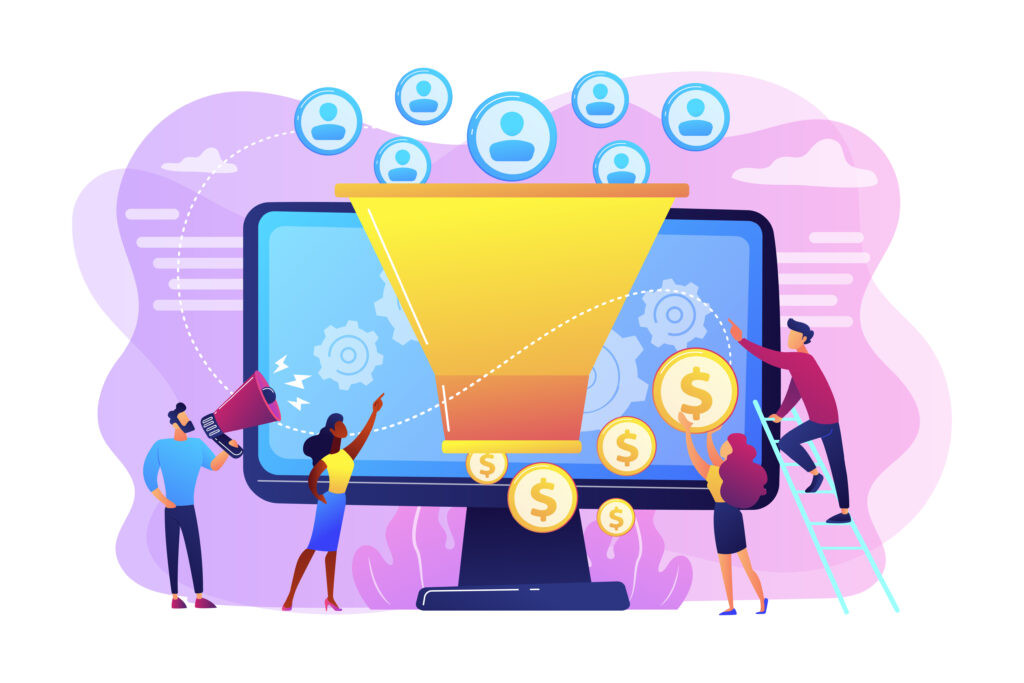
In today’s rapidly evolving digital landscape, the marketing funnel for a digital agency is more than just a concept—it’s a strategic framework that shapes how businesses attract, engage, and convert prospects into loyal customers. For business owners and decision-makers navigating the competitive world of online marketing, understanding the nuances of the digital marketing funnel is vital to sustainable success. Whether you’re seeking to optimise your customer journey or craft a high-converting campaign, this in-depth explainer will guide you through every phase, using actionable insights and real-world examples grounded in industry best practices.
The Surprising Facts About Marketing: Deep Dive Explainer
Understanding the Digital Marketing Funnel
The digital marketing funnel is a conceptual model that depicts how a potential consumer progresses from their first interaction with your business to becoming a devoted customer. For digital agencies, this funnel is not just a theoretical construct but a practical framework that shapes marketing strategies and customer engagement.
1. Awareness: Casting a Wide Net
At the top of the funnel, our goal is to attract potential clients by increasing brand visibility. This stage is all about reaching out to a broad audience and making them aware of your agency’s existence and offerings.
Key strategies for the awareness stage include:
- Content marketing (blogs, infographics, videos)
- Social media presence
- SEO optimisation
- Paid advertising campaigns
2. Interest: Piquing Curiosity
Once potential clients are aware of your agency, the next step is to generate interest in your services. This stage entails delivering useful information that solves their concerns and showcases your skills.
Effective tactics for the interest stage:
- Targeted email marketing campaigns
- Webinars and online workshops
- Case studies and success stories
- Engaging social media content
3. Consideration: Showcasing Your Expertise
At this stage, potential clients are actively evaluating your agency against competitors. It’s crucial to differentiate yourself by highlighting your unique value proposition and demonstrating why you’re the best choice.
Strategies to excel in the consideration stage:
- Detailed service pages on your website
- Comparison guides
- Client testimonials and reviews
- Free consultations or audits
4. Intent: Nurturing Potential Clients
As prospects move further down the funnel, they show clear intent to engage with your agency. This is the time to provide more personalised communication and address any remaining concerns.
Effective approaches for the intent stage:
- Tailored proposals
- Product demonstrations
- Follow-up emails with specific solutions
- Retargeting ads with special offers
5. Evaluation: Making the Case
At this critical juncture, potential clients are making their final decision. Your agency needs to present a compelling case that leaves no doubt about your capabilities and value.
Strategies for the evaluation stage:
- Detailed project scopes and timelines
- ROI projections
- Case studies of similar clients
- Transparent pricing and packages
6. Purchase: Sealing the Deal
This stage marks the end of your funnel efforts and is where prospects become clients. Ensure a smooth onboarding process to start the relationship on the right foot.
Best practices for the purchase stage:
- Clear and concise contracts
- Seamless payment processes
- Welcome packages and onboarding materials
- Introductory calls or meetings
The Future Of Marketing – Beyond Trends
Optimising Your Digital Marketing Funnel

Now that we’ve explored the stages of the digital marketing funnel, let’s dive into strategies for optimisation. A well-optimised funnel can significantly improve conversion rates and client retention.
1. Data-Driven Decision Making
Leverage analytics tools to track user behaviour throughout the funnel. This information can help you discover bottlenecks and opportunities for improvement.
Key metrics to monitor:
- Click-through rates
- Time on page
- Conversion rates at each stage
- Drop-off points
Voice Search Optimization – Revolutionising Digital Marketing
2. Personalisation and Segmentation
Tailor your messaging and content to different audience segments. Personalisation can significantly boost engagement and conversion rates.
Personalisation strategies:
- Dynamic content on your website
- Segmented email campaigns
- Customised retargeting ads
- Personalised landing pages
3. Continuous Testing and Refinement
The digital landscape is constantly changing, and so should your funnel. To optimise performance, evaluate various funnel parts on a regular basis.
Areas to focus on:
- A/B testing of landing pages
- Email subject line optimisation
- Call-to-action (CTA) placement and design
- Ad copy and creative variations
4. Alignment with the Consumer Buying Funnel
Digital agencies must have a thorough understanding of the customer buying funnel. This concept closely relates to the marketing funnel but focuses on the psychological stages a buyer goes through.
Stages of the consumer buying funnel:
- Problem recognition
- Information search
- Evaluation of alternatives
- Purchase decision
- Post-purchase behaviour
By aligning your digital marketing funnel with the consumer buying funnel, you can create more targeted and effective campaigns that resonate with potential clients at each stage of their decision-making process.
5. Leveraging Technology
Utilise marketing automation tools and CRM systems to streamline your funnel processes and provide a more seamless experience for potential clients.
Key technologies to consider:
- Marketing automation platforms
- Customer relationship management (CRM) software
- AI-powered chatbots
- Predictive analytics tools
Trend Analysis Of Digital Marketing For Small Companies
A Comprehensive Guide to Marketing Funnel Creation

For a digital agency, developing a successful marketing funnel takes meticulous preparation and implementation. This is a detailed guide to assist you in creating a funnel that produces outcomes:
- Identify your target market. To better understand your target customers, create thorough buyer personas.
- Set clear objectives: Establish specific, measurable goals for each stage of the funnel.
- Make engaging content: Create excellent content that speaks to your target audience’s needs and problems at every turn.
- Choose the right channels: Identify the most effective platforms to reach your audience, whether it’s social media, email, or paid advertising.
- Implement tracking systems: Set up analytics tools to monitor user behaviour and funnel performance.
- Create landing pages that are optimized for conversions: Make landing pages specifically for various offers and campaigns.
- Develop lead nurturing campaigns: Create automated email sequences to guide prospects through the funnel.
- Optimise for mobile: Ensure your funnel is fully responsive and provides a seamless mobile experience.
- Implement retargeting strategies: Use retargeting ads to re-engage prospects who have shown interest but haven’t converted.
- Continuously analyse and refine: Regularly review your funnel’s performance and make data-driven improvements.
Common Pain Points and Solutions in Digital Agency Funnels
While the marketing funnel for a digital agency offers immense potential, challenges do arise:
- Lead drop-off due to lack of personalisation.
- Misaligned content failing to address specific buyer concerns.
- Inconsistent follow-up diminishing trust.
- Complex integration with legacy systems.
Gobblex Tech addresses these hurdles by:
- Employing adaptive content that resonates at every touchpoint.
- Using AI-driven segmentation for hyper-personalised campaigns.
- Ensuring seamless integration with existing client platforms and CRMs.
- Providing dedicated support for onboarding and ongoing optimisation.
Conclusion: Elevating Your Agency’s Performance
Mastering the digital marketing funnel is an ongoing process that requires dedication, creativity, and a data-driven approach. By understanding each stage of the funnel and implementing strategies to optimise performance, your digital agency can attract more qualified leads, improve conversion rates, and ultimately drive sustainable growth.
At Gobblex Tech, we’re committed to helping businesses thrive in the digital realm. By leveraging our expertise in crafting effective marketing funnels, we empower our clients to achieve their goals and stand out in a competitive landscape.
Remember, a well-designed funnel is not just about moving prospects from one stage to another; it’s about creating meaningful interactions and building lasting relationships with your clients. By focusing on providing value at every touchpoint, you’ll not only improve your funnel’s performance but also establish your agency as a trusted partner in your clients’ success.
Are you ready to transform your digital agency’s marketing funnel and unlock new levels of growth? Contact Gobblex Tech today, and let’s embark on this journey together. Your success is our priority, and we have the tools, expertise, and passion to help you achieve it.
🚀 FAQ: Understanding Marketing Funnels in Digital Marketing
1. What is the marketing funnel for a digital marketing agency?
A marketing funnel for a digital marketing agency is a step-by-step process that guides potential clients from discovering your agency to becoming loyal customers. It involves awareness, interest, decision, and action stages, helping you nurture leads and convert them into clients.
2. How do you set up a digital marketing funnel?
To set up a digital marketing funnel:
- Define your target audience
- Create engaging content to attract leads (blogs, social media posts, etc.)
- Nurture your leads with email marketing or ads
- Convert them into customers with strong calls-to-action and offers
- Measure and optimize for better results
3. What are the 5 stages of the marketing funnel?
The 5 stages of a marketing funnel are:
- Awareness – The prospect learns about your product or service.
- Interest – They show interest by engaging with your content.
- Consideration – They evaluate your product compared to others.
- Intent – They show a clear intent to purchase.
- Action – They make the purchase or sign up.
4. What is a sales funnel in digital marketing?
A sales funnel is the process that guides potential customers through each step—from awareness to conversion. It’s designed to convert leads into paying customers by offering the right content or offers at each stage.
5. What is a funnel in SMMA?
In Social Media Marketing Agencies (SMMA), a funnel refers to the process of turning social media followers into clients. This usually involves attracting leads through engaging content, nurturing them with valuable offers, and converting them into paying clients with targeted ads or consultations.
6. What is an example of a marketing funnel?
An example of a marketing funnel:
- Awareness: A blog post about digital marketing.
- Interest: A lead magnet like an e-book.
- Consideration: An email series offering case studies.
- Intent: A free consultation offer.
- Action: The lead books a service with your agency.
7. What is a funnel in affiliate marketing?
In affiliate marketing, a funnel guides potential customers through the buying process from awareness to purchase. Affiliates use content like blogs, reviews, or videos to introduce products, and then use special links to track conversions and earn commissions.
